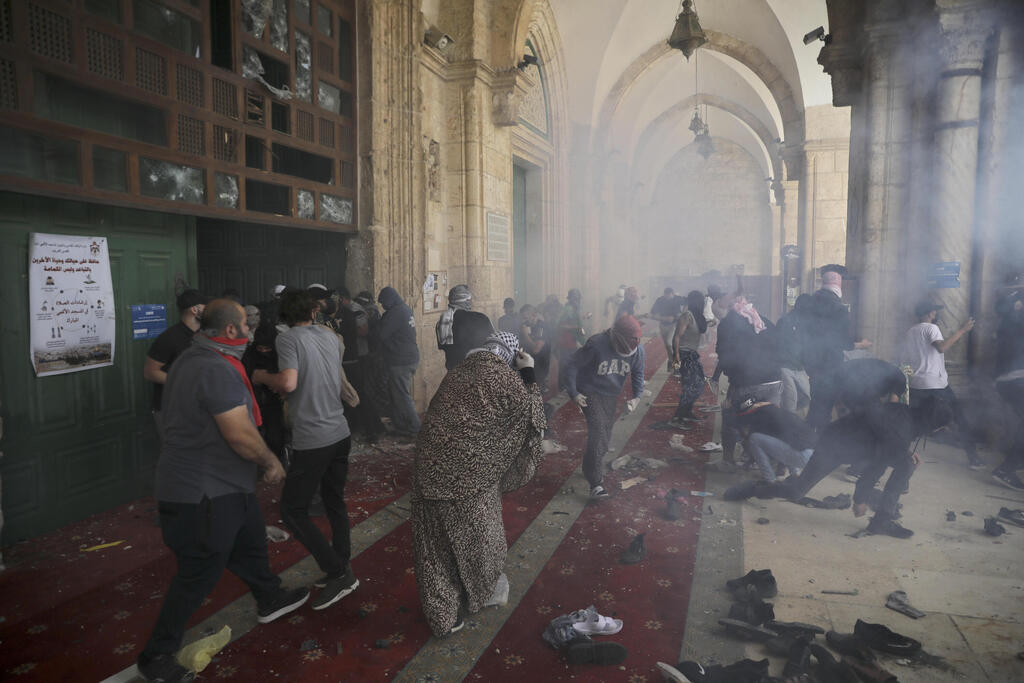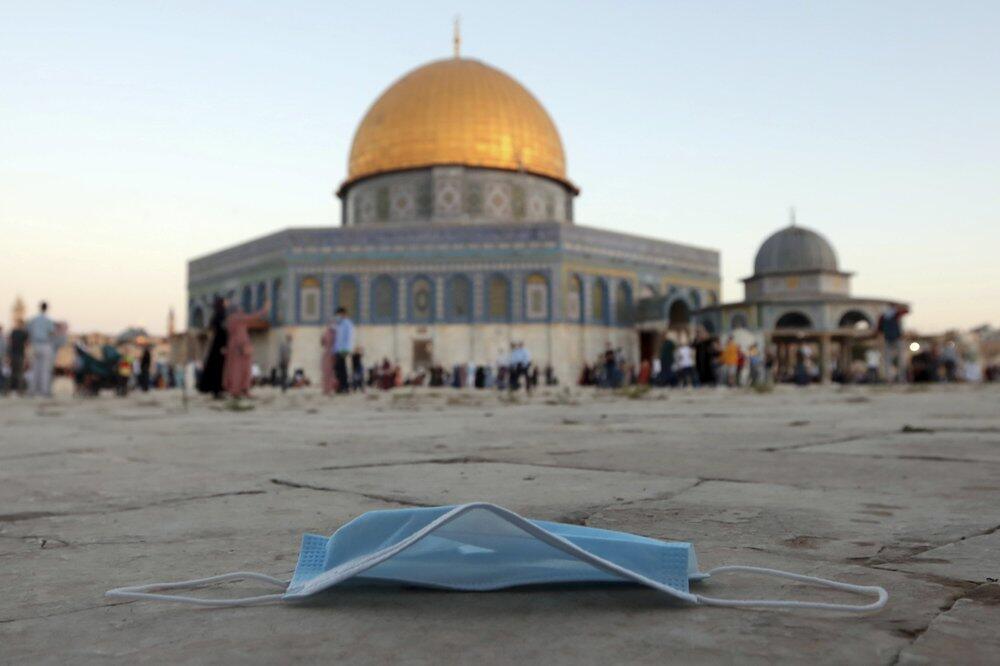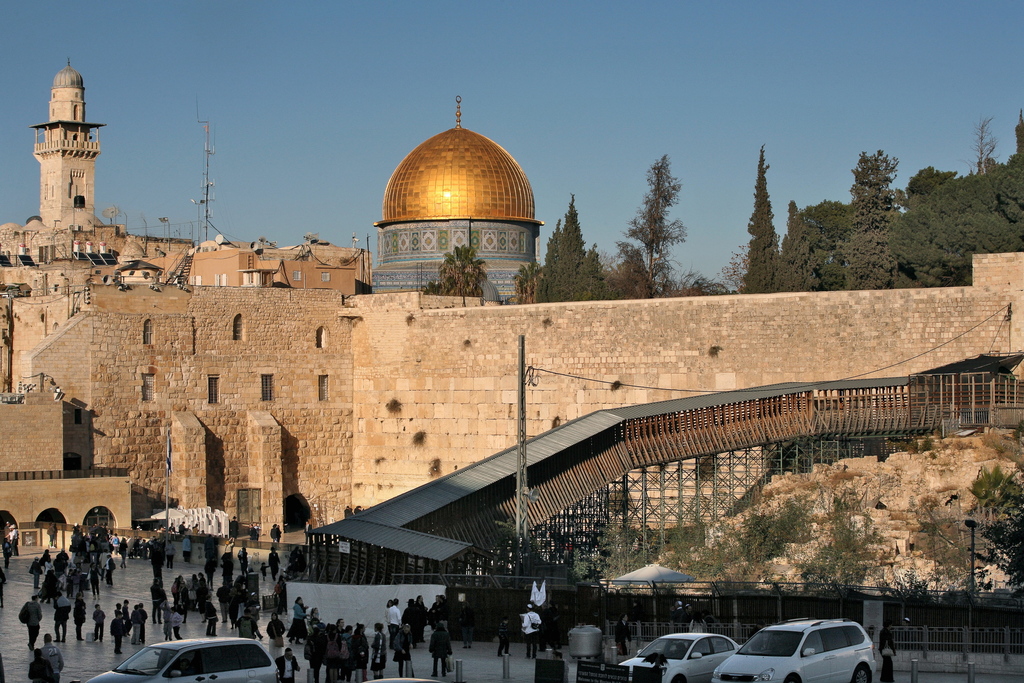In the wake of a Magistrates’ Court ruling in Jerusalem this past week, the news from Islamic sources appears ominous and quite threatening.
Turkey has condemned it, “strongly.” The Turkish Foreign Ministry announced that it will “further encourage fanatic circles” and “cause new tensions.” The Egyptian Foreign Ministry denounced it and expressed “its extreme concern for the repercussions of such a court ruling and its impact on the security and stability in the region.”
The Executive Committee of the Palestine Liberation Organization warned of the consequences of the decision and the Palestine National Council (PNC) considered the ruling “a direct and explicit aggression against the sole right of Muslims.”
And what was the decision? Judge Bilhah Yahalom last week adjudicated that “quiet” Jewish prayer can be held at Al-Aqsa Mosque compound as long as it remains silent and does not violate Israel Police instruction nor is it criminal. In fact, her opinion is in accordance with the Law for the Protection of Holy Places and several High Court of Justice judgments.
However, it does conflict with Israeli government policy since 1967, known as the “status quo,” which says that while Jews (and Christians) may visit the Temple Mount, only Muslims can pray there.
Haaretz’s Anshel Pfeffer opines that, indeed, “Jews should have the right to worship freely but not in today’s Jerusalem.” He thinks that the right to freedom of worship “isn’t just for the kind of worship we tend to agree with, but also, and especially, the worship we disagree with.” Nevertheless, he opposes that right at the moment, not so much due to the vehement responses quoted above, or worse, threats, but rather because of some vague ideological viewpoint: “Jerusalem is not a free city with equal rights for all its residents.”
But what of the main problem? Why do so many people slip into a mode of vacuous rationality and suggest either there is no such right, that Jewish prayer is a provocation, or even that the Jewish Temples never existed, as is heard from PNC officials? Or that Jews entering the Haram al-Sharif compound are “storming,” as if invading a place, not theirs?
Within days of the ruling, on an appeal by the police, District Court Judge Aryeh Romanov confirmed that Jews are barred from worshiping openly at the site. Nevertheless, the issue will not go away and its causes and ramifications need to be analyzed.
4 View gallery


Palestinians clash with Israeli security forces at the al-Aqsa Mosque compound in Jerusalem's Old City, May 10, 2021
(Photo: AP)
It should be clear: No Jew enters a Muslim building on the Temple Mount and surely not in a mosque. The compound is rather large and there is more than enough room for it to be shared. After all, in Hebron, Jews do pray daily in a structure considered a mosque (the Cave of the Patriarchs). So why is there this form of Islamic cancel culture which can be summarized so: The Temple Mount belongs solely to the Muslims and the Western Wall to the Jews.
First, the facts. Invading Muslim armies conquered Jerusalem in 638 CE and usurped, physically and theologically, Mount Moriah. Although Jews were permitted to enter at times, from the 13th century until the late 19th century, Jewish entry was prohibited. This also was the situation in Hebron. In 1947, a Jew who accidentally entered the compound was killed. Parallel to this, the majority rabbinic opinion was that, despite the compound being larger than the original sacred area, all entry would be prohibited.
On this background, in 1967, the famous status quo was adopted. But if that situation is not static – Muslims have opened three new mosques since then – do they have any right to protest? Are they the only ones who have the right to be “provoked?” The Israel-Jordan Peace Treaty’s Article 9 calls for the promotion of “interfaith relations … with the aim of working toward religious understanding … freedom of religious worship and tolerance.” Should that not be honored?
Can't we attempt to achieve peace through religious unity and compromise? Why do we need to tolerate such degrading language in the Arabic media on this issue as when Palestinian Authority President Mahmoud Abbas said Jews “defile the Al-Aqsa Mosque with their filthy feet.”
The Waqf, and its financial patron, Jordan’s Ministry of Awqaf Islamic Affairs and Holy Places, have prevented surveillance cameras that could reduce violence and encourage the bullying attitude that presages rock-throwing and worse. They need to be more responsible.
In the spirit of Isaiah 56:7, that “my house will be called a house of prayer for all nations,” can't we accept that all who seek to respect and worship at their holy sites be allowed to do so reasonably without recourse to threats of violence?




